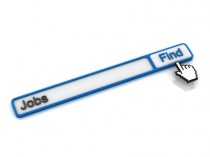
As if it weren’t already the Swiss-army knife of all social networks, Facebook adds on yet another function to its laundry list of features: “Social Jobs”. Facebook teams up with the U.S. Department of Labor, the National Association of Colleges and Employers (NACE), DirectEmployers Association (DE), and the National Association of State Workforce Agencies (NASWA) in a partnership aimed to help America’s unemployed find jobs with the help of social media. The idea behind using social media to advertise employment opportunities is its potential for widespread influence; since Facebook is such a high traffic website, employers have a better chance of finding the perfect fit in such a large pool of potential candidates. The Facebook Social Jobs page features a search bar similar to those on other job search websites. The user fills in keywords and chooses specific job categories, and then the system finds open positions that match the user’s request. Facebook combines information from other renowned websites’ databases. This is in line with its goal of becoming a one-stop, all-encompassing resource.

